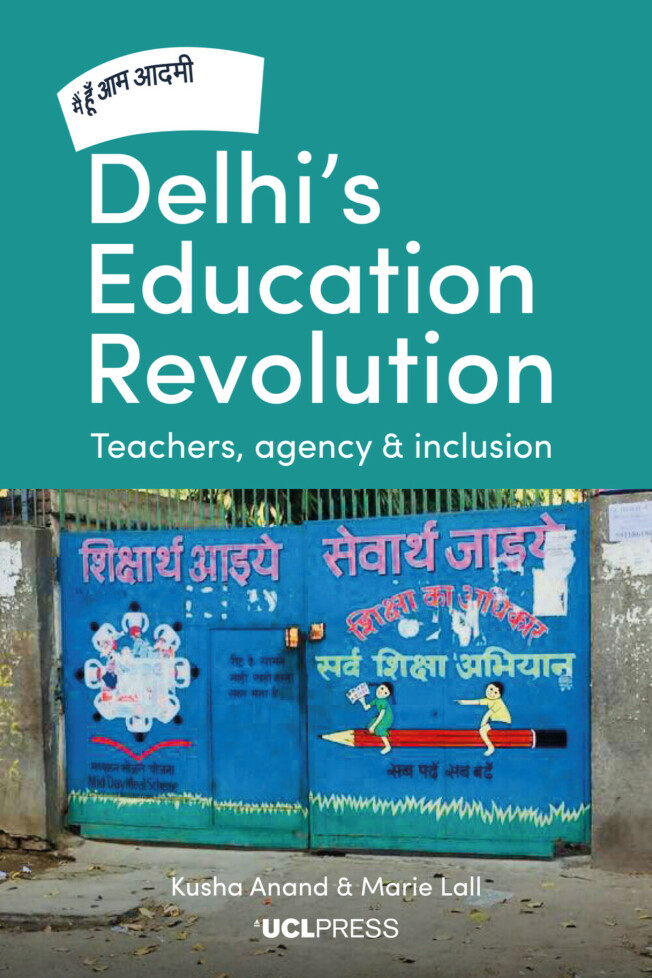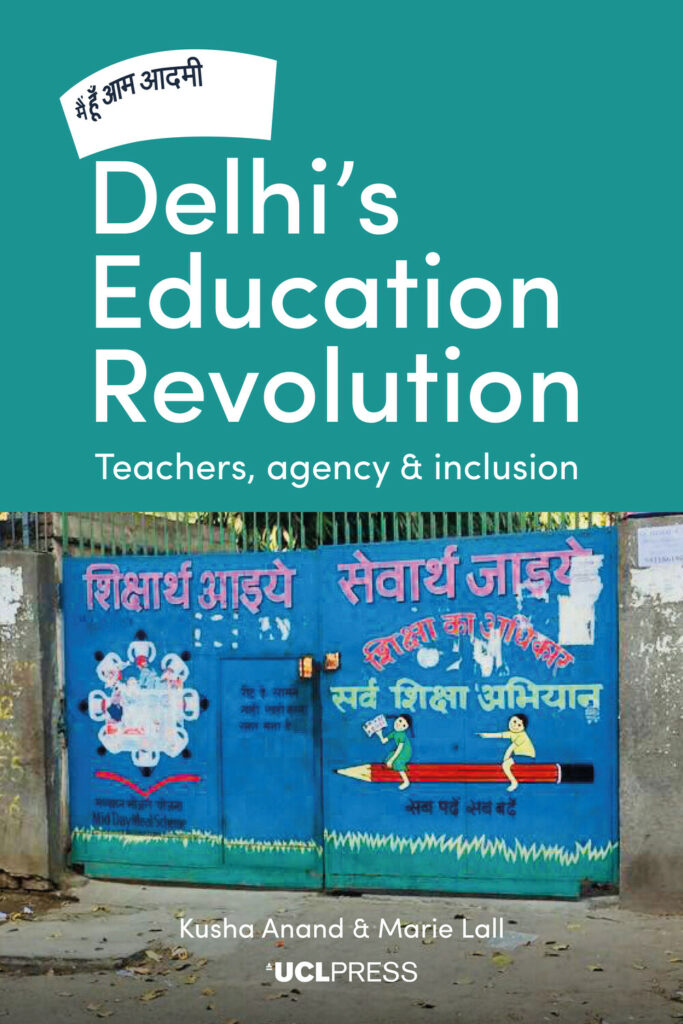
Delhi’s Education Revolution
Teachers, agency and inclusion
Kusha Anand (Author), Marie Lall (Author)
In 2015, the Aam Aadmi Party (AAP) was elected to govern Delhi promising to improve public services, including education through government schools that would be the equal of private-school provision. Media reports, along with the party’s re-election in 2020, suggest strong public confidence that AAP are delivering on that promise. But is this success reflected by experience in schools?
Delhi’s Education Revolution offers a critical evaluation of the AAP’s education reforms by exploring policy and practice through the eyes of one key group: the government-school teachers tasked with making the AAP’s pledge a reality. Drawing on 110 research interviews conducted via Zoom during the Covid pandemic in the summer of 2020, teachers explain how the reforms have changed their profession and practice, and whether education really has improved for children of all backgrounds. Analysis of views about critical issues such as inclusion and the pressure of achievement targets in classrooms that often contain more than 50 students, informs their observations about the reform programme itself. The study paints a more qualified picture of success than suggested elsewhere and makes a valuable contribution to the understanding of education reforms in India, and most especially, in Delhi.
Acknowledgements
List of figures
List of abbreviations
1 Setting the scene
2 Education policy and politics in India and in Delhi
3 Teachers, training and capacity building: what do teachers want?
4 Teachers and the Delhi classroom: what has changed?
5 Teachers and inclusion: success for all?
6 Teachers and COVID-19: challenges of a pandemic
Epilogue: Was it a revolution?
References
Index
DOI: 10.14324/111.9781800081383
Number of illustrations: 3
Publication date: 26 September 2022
PDF ISBN: 9781800081383
EPUB ISBN: 9781800081413
Hardback ISBN: 9781800081406
Paperback ISBN: 9781800081390
Kusha Anand (Author) 
Kusha Anand is a Research Associate at the UCL Institute of Education where she was awarded her PhD in Political Sociology of Education in 2019. Her thesis looked at how the history of India-Pakistan relations is enacted in schools in Delhi and Lahore. She has over a decade of fieldwork experience on several interdisciplinary projects liaising with policymakers, teachers, EdTech entrepreneurs, and NGOs in India.
Marie Lall (Author) 
Marie Lall is Professor of Education and South Asian Studies at the UCL Institute of Education. She is a South Asia specialist working on India, Pakistan and Myanmar, with over 30 years of experience in the region specialising in political issues and education. She has authored over 100 publications, including 12 widely cited books.
Related titles
Delhi’s Education Revolution
Teachers, agency and inclusion
In 2015, the Aam Aadmi Party (AAP) was elected to govern Delhi promising to improve public services, including education through government schools that would be the equal of private-school provision. Media reports, along with the party’s re-election in 2020, suggest strong public confidence that AAP are delivering on that promise. But is this success reflected by experience in schools?
Delhi’s Education Revolution offers a critical evaluation of the AAP’s education reforms by exploring policy and practice through the eyes of one key group: the government-school teachers tasked with making the AAP’s pledge a reality. Drawing on 110 research interviews conducted via Zoom during the Covid pandemic in the summer of 2020, teachers explain how the reforms have changed their profession and practice, and whether education really has improved for children of all backgrounds. Analysis of views about critical issues such as inclusion and the pressure of achievement targets in classrooms that often contain more than 50 students, informs their observations about the reform programme itself. The study paints a more qualified picture of success than suggested elsewhere and makes a valuable contribution to the understanding of education reforms in India, and most especially, in Delhi.

